
Hispanic registered voters are generally more negative in their assessments of Donald Trump than Kamala Harris, but there are differences between the views of men and women.
Hispanic male voters tend to be divided on their overall opinion of both Harris and Trump, and whether either one would make a good president. Hispanic women are inclined to have more positive views of Harris, and about half Hispanic women think she would make a good president.
Hispanic Republican voters and Hispanic Democratic voters are about equally inclined to say their party’s candidate would make a good president. Forty-six percent of Hispanic registered voters say they are Democrats or lean Democratic, while 34% identify as Republican or lean that way. Independents, those who say they don’t lean toward either party, make up 19% of Hispanic voters.
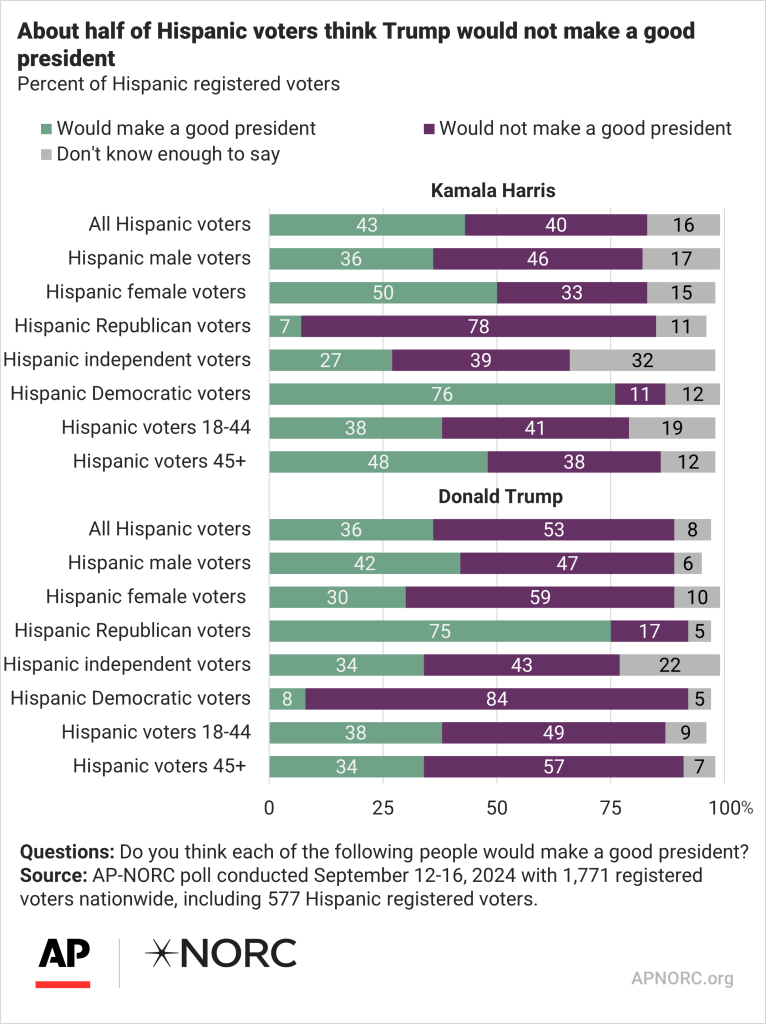
Hispanic registered voters are more likely to say that Harris better represents their views on policies, their age group, or background and culture compared with Trump.
Hispanic voters are more closely divided on whether Harris or Trump better represents their religious views or beliefs (30% vs. 31%), while a third say neither candidate is good at representing their religious beliefs.
About 4 in 10 Hispanic voters consider their religion to be an extremely or very important aspect of their identity. Among them, 47% think Trump better represents their religious views or beliefs compared with 28% who say Harris does.
Forty percent of Hispanic voters say race is important to their identity. Among them, 48% say Harris better represents their background or culture consider and 24% think Trump does.
About 4 in 10 Hispanic voters regard their age as an important to their identity. Among them, 44% think Harris better represents their age or generation compared with 27% who say Trump does.
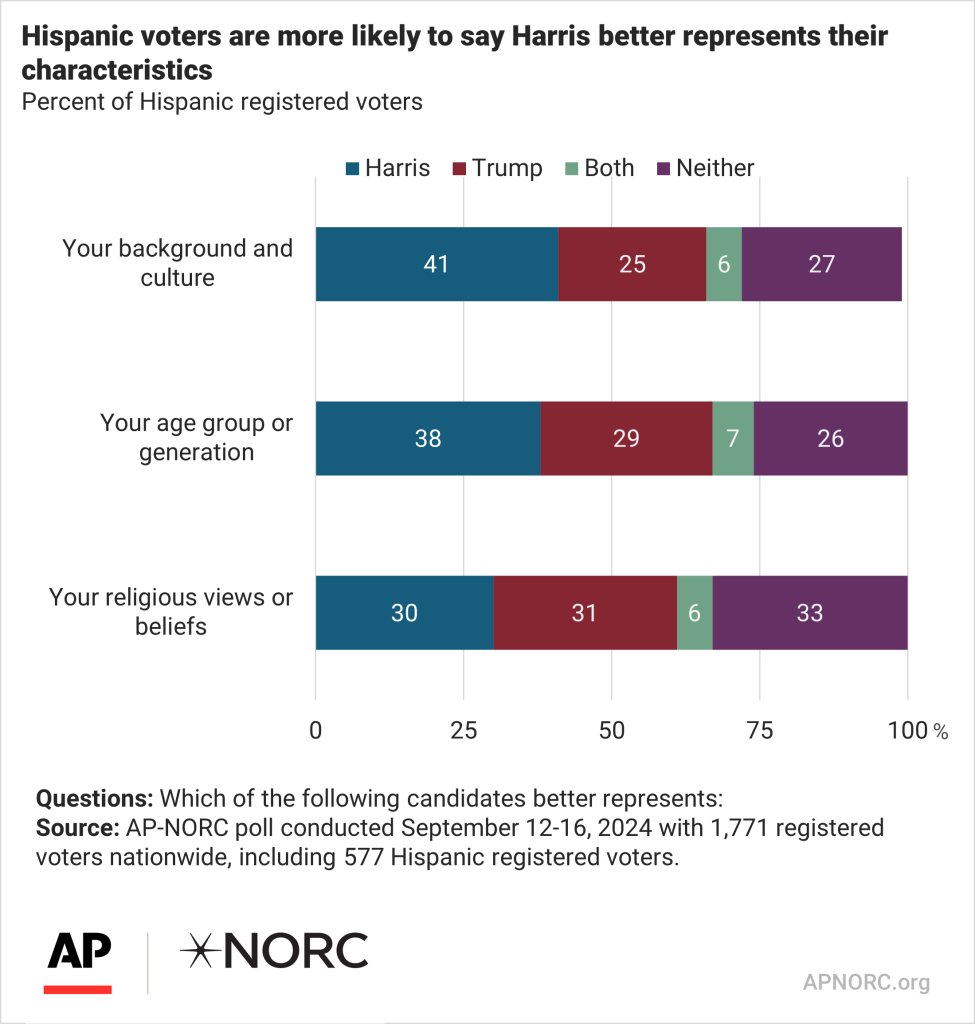
Overall, Hispanic registered voters are closely divided over whether the phrases “tough enough to be president,” “would change the country for the better,” “would fight for people like you” or “will say anything to get elected” describe Harris extremely or very well or don’t describe her very well or at all. About a fifth say each phrase describes Harris somewhat well.
In contrast, about half of Hispanic voters think the phrases “would change the country for the better” and “would fight for people like you” do not describe Trump very well or at all. Hispanic voters are closely divided on whether Trump is tough enough to be president. But 55% say “will say anything to get elected” describes Trump well.
In many cases, Hispanic male voters are more likely than Hispanic women to say a phrase does describe Trump and does not describe Harris. And conversely, Hispanic female voters are more likely to say a phrase better describes Harris.
For example, Hispanic male voters are more likely than Hispanic female voters to say “tough enough to be president” describes Trump (38% vs. 28%), while Hispanic female voters are more likely to say Harris is tough enough to be president (45% vs. 27%). Hispanic men are more likely than Hispanic women to think Harris is not described as changing the country for the better (49% vs. 35%), but Hispanic women are more inclined to say Trump would not change the country for the better (55% vs 40%).
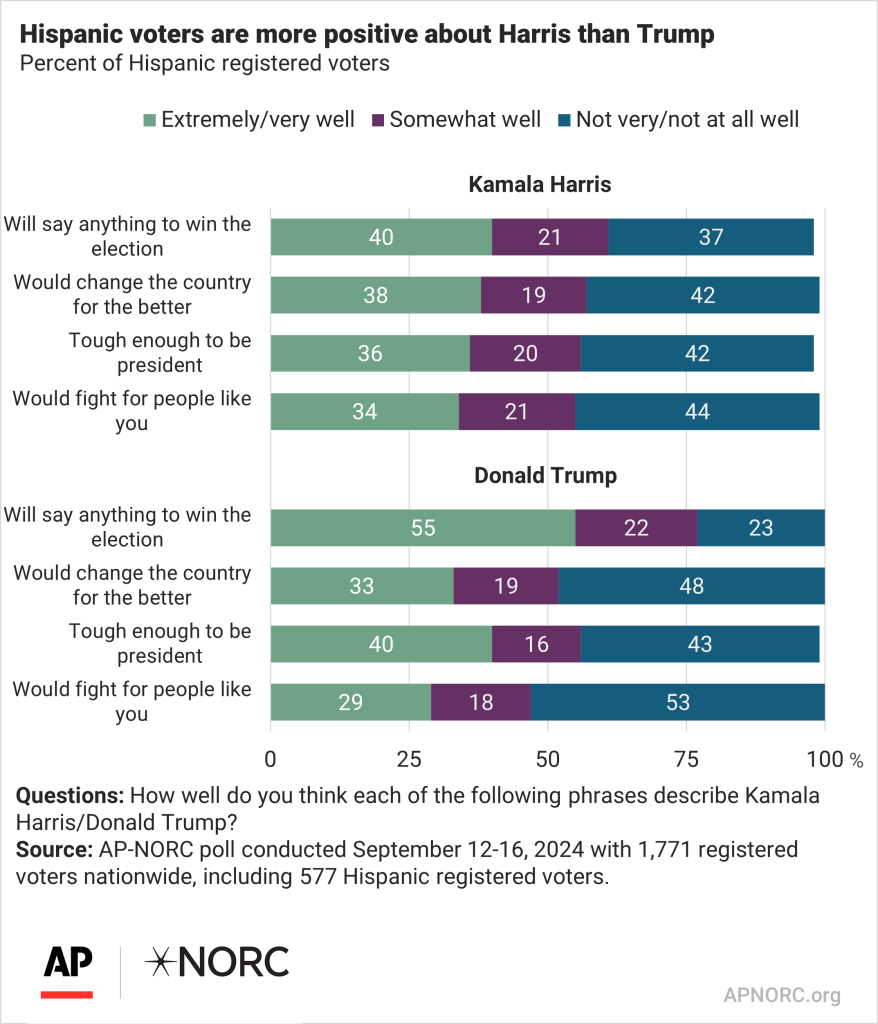
Like a majority of registered voters nationwide, most Hispanic voters regard the economy as one of the most important issues to their vote in the upcoming election. But Hispanic voters are more likely than all voters to cite health care and crime among the top issues they care about.
Hispanic voters over the age of 45 are more likely than younger Hispanic voters to say immigration is one of the most important issues for their vote (54% vs. 34%). Hispanic women are more likely than Hispanic men to be concerned about both abortion policy (57% vs. 29%) and gun policy (62% vs. 37%).
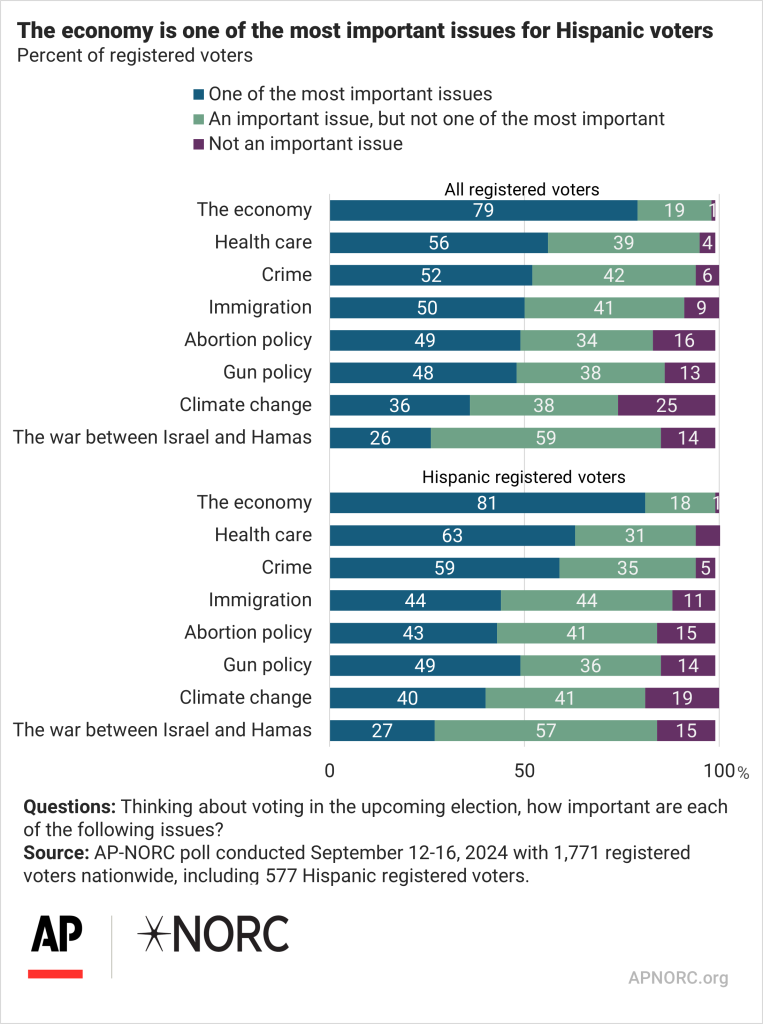
Hispanic voters overall are divided in their opinions of both presidential candidates. But again Hispanic women are more negative about Trump and more positive about Harris than Hispanic men.
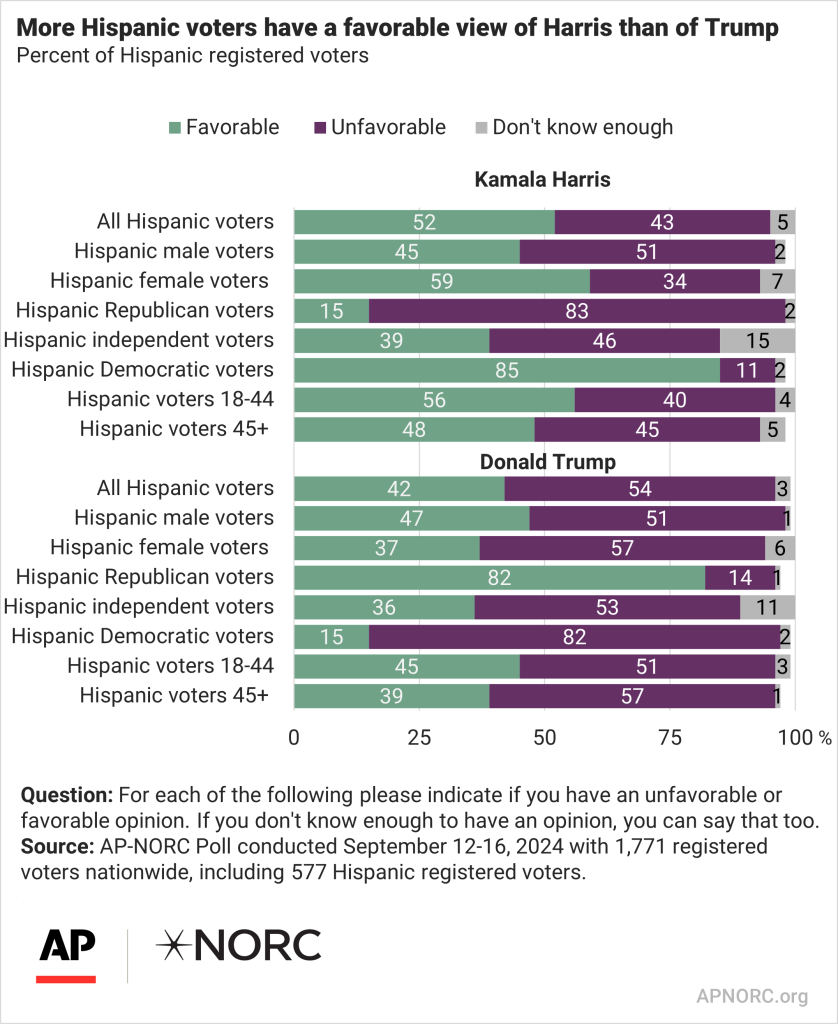
The nationwide poll was conducted September 12-16, 2024 using the AmeriSpeak® Panel, the probability-based panel of NORC at the University of Chicago. Online and telephone interviews using landlines and cell phones were conducted with 1,771 self-reported registered voters, 577 of whom are Hispanic. The margin of sampling error for all registered voters is +/- 3.4 percentage points; +/- 5.8 percentage points for Hispanic registered voters.
- Suggested Citation: AP-NORC Center for Public Affairs Research. (October 2024). https://apnorc.org/projects/kamala-harris-is-viewed-more-positively-by-hispanic-voters-than-donald-trump/







